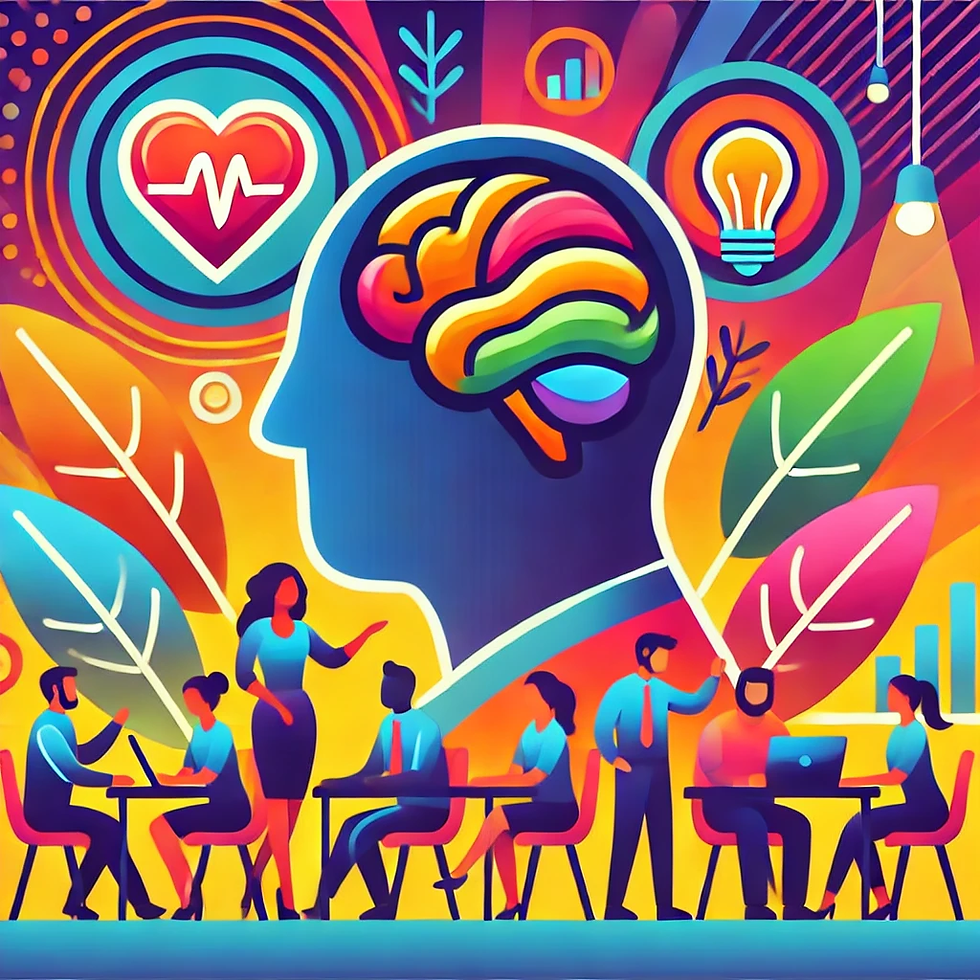Generation on the Brink: Decoding the Gen Z Mental Health Crisis
- Anjali Gulati
- Mar 10
- 3 min read
Updated: Apr 1

You ever look around and wonder why today’s youth..arguably the most connected, tech-savvy, and aware generation—are also the most anxious, stressed, and emotionally drained? It’s not just a feeling. It’s a fact.
Depression, anxiety, and behavioral disorders are now leading causes of illness and disability among young people. Emotional distress among youth has reached alarming levels, with self-harm and crisis episodes increasing at an unprecedented rate.
In the U.S., emergency visits related to severe mental health concerns among teenage girls surged by a staggering 51% during the pandemic. And let’s not pretend this is just a Western issue—youth mental health is unraveling worldwide. The question is, how did we get here?
What’s Going On? Why Are Young Minds in Crisis?

Social Media: The Beautiful Illusion
We were promised connection, but what we got was an algorithmic minefield of comparison, validation addiction, and FOMO. Studies show that excessive social media use is directly linked to rising rates of anxiety, depression, and loneliness. We scroll, we compare, we feel worse—and then we do it all over again.
And the scary part? Most young people know it’s harming them, but they can’t stop. Tech companies design these platforms to be addictive, and we’ve unknowingly handed our self-worth over to likes, shares, and filters. When validation is just a notification away, self-esteem becomes fragile.
The Pressure Cooker of Success

School, college, job—repeat. From an early age, kids are placed in a relentless cycle of exams, career expectations, and “hustle culture.” One bad grade, one failed attempt, and suddenly, self-worth plummets. When did we start defining young people’s value by their productivity instead of their potential?
Add to that the expectation to “figure life out” before 25. Society glorifies the young entrepreneur, the 20-year-old millionaire, and the overnight success story—while making everyone else feel like they’re falling behind.
No wonder burnout is hitting harder and earlier than ever before.
Doomscrolling the Future.

Ask Gen Z about their biggest worries, and you won’t just hear about school. Climate change, economic instability, global conflicts—it’s all too much, too real, and too constant.
We expect young people to be engaged, aware, and proactive, but how do you not spiral when every headline feels like a catastrophe waiting to happen?
And let’s not ignore financial anxiety. Many young people feel like they’ll never own a home, have a stable career, or retire comfortably. The “work hard and succeed” formula that worked for past generations feels broken. Again, it's no surprise that hopelessness is creeping in.
The Disappearing Art of Talking

Here’s a wild thought: we’re hyperconnected online but lonelier than ever. Face-to-face interactions are declining, and guess what?
Human connection is crucial for mental health. Isolation, even in the age of endless messaging apps, is a silent killer. Genz loves talking in group chats, we comment on posts, but when was the last time we had a real, raw, in-person conversation?
The kind that makes you feel heard, seen, and supported? We need to bring that back.
So… What Do We Do About It?
Focusing on Gen Z mental health can lead to a more balanced, productive society.

Talk. Really talk. Therapy isn’t just for crises—it’s for growth. Mental health isn’t a taboo topic; it’s essential.
Unplug (for real). Regulating screen time isn’t just a “nice idea”—it’s a necessity. That TikTok binge? It might be fueling your anxiety more than you think.
Mental fitness = daily reps. Exercise, mindfulness, journaling—mental health needs the same care as physical health. Don’t ignore it.
Challenge the system. Schools, workplaces, and communities need to rethink how we define success. It’s not just about performance; it’s about well-being.
Encourage offline connections. Loneliness is a silent epidemic. Prioritizing real-world socialization over digital validation could be life-changing.
Let’s Get Real for a Second…
Some people say, “Kids these days have it easy.” Really? Sure, they might not be fighting world wars, but they’re waging battles inside their own minds. If we don’t take the Gen Z Mental Health Crisis crisis seriously, we’ll be looking at a generation that’s too burnt out to even imagine a future.
So, let’s start talking.

What do you think is the biggest contributor to this crisis? What small steps can we take today to make a difference? Gen Z Mental Health Crisis is REAL. Drop your thoughts below—this conversation is just getting started.



Comments